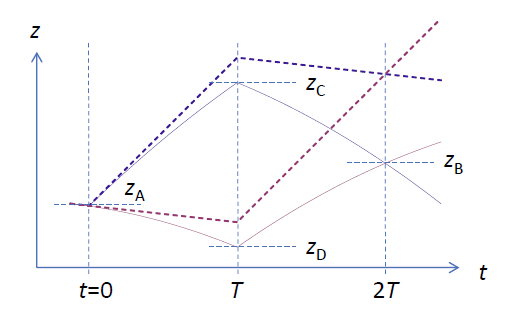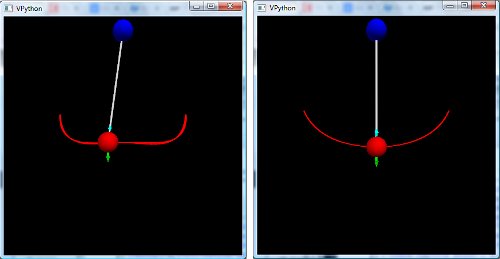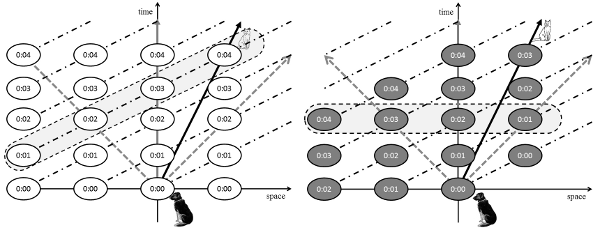One thing I left out of the making-of story about the squeezed state BEC paper last week happened a while after publication– a few months to a year later. I don’t quite recall when it was– I vaguely think I was still at Yale, but I could be misremembering. It’s kind of amusing, in an… Continue reading The Making of a Sign Error
Category: Theory
Photons Are Here to Stay, Deal With It
I spend a lot of time promoting Rhett Allain’s Dot Physics blog, enough that some people probably wonder if I get a cut of his royalties (I don’t). I’m going to take issue with his latest, though, because he’s decided to revive his quixotic campaign against photons, or at least teaching about photons early in… Continue reading Photons Are Here to Stay, Deal With It
What Is Squeezing?
In the Physics Blogging Request Thread the other day, I got a comment so good I could’ve planted it myself, from Rachel who asks: It’s a term I see used a lot but don’t really know what it means – what is a “squeezed state”? What does “squeezing” mean? (in a QM context of course…)… Continue reading What Is Squeezing?
Of Controversies and Clocks
A few months back, I got a call from a writer at a physics magazine, asking for comments on a controversy within AMO physics. I read a bunch of papers, and really didn’t quite understand the problem; not so much the issue at stake, but why it was so heated. When I spoke to the… Continue reading Of Controversies and Clocks
Experiment and Theory in the Popular Imagination
A little while back, I posted about the pro-theorist bias in popular physics, and Ashutosh Jogalekar offers a long and detailed response, which of course was posted on a day when I spent six hours driving to Quebec City for a conference. Sigh. Happily, ZapperZ and Tom at Swans On Tea offer more or less… Continue reading Experiment and Theory in the Popular Imagination
Mysteries of the Simulated Pendulum
Last week, I spent a bunch of time using VPython to simulate a simple pendulum, which was a fun way to fritter away several hours (yes, I’m a great big nerd), and led to some fun physics. I had a little more time to kill, so I did one of the things I mentioned as… Continue reading Mysteries of the Simulated Pendulum
American Physicists and the Under-rating of Experiments
At Scientific American’s blog network, Ashutosh Jogalekar muses about the “greatest American physicist”, eventually voting for Josiah Willard Gibbs, one of the pioneers of statistical mechanics. As both times I took StatMech (as an undergrad and in grad school), it was at 8:30 in the morning, I retain almost no memory of the subject, and… Continue reading American Physicists and the Under-rating of Experiments
Return of The Physics Bus
My parents have a DVD of the Bacon Brothers singing “The Wheels on the Bus” over an animated scene, which The Pip loves and insists on watching over, and over, and over, and over… As the parent sitting through this on Sunday morning, I got a little punchy over on Twitter, and invented some quantum-physics-themed… Continue reading Return of The Physics Bus
Time Is What You Measure With a Clock
Last year, Alan Alda posed a challenge to science communicators, to explain a flame in terms that an 11-year old could understand. this drew a lot of responses, and some very good winners. This year’s contest, though still called the “Flame Challenge,” asked for an answer to the question “What Is Time?” This is a… Continue reading Time Is What You Measure With a Clock
The Trouble With Physics
For something related to the book-in-progress, I was reading Raymond Chandler’s classic essay “The Simple Art of Murder” last night, and stumbled across the following quote, where he laments the number of stories in print in the mystery genre in 1950: In my less stilted moments I too write detective stories, and all this immortality… Continue reading The Trouble With Physics






